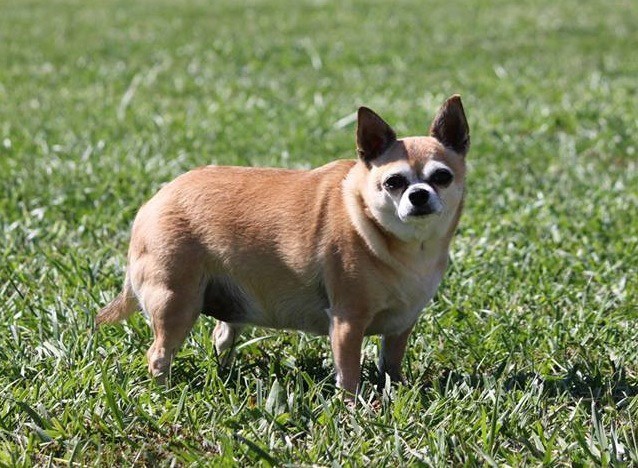
Help your pet shed the pounds!– Get your pet bikini ready!
The percentage of overweight or obese dogs and cats has grown extraordinarily high – some surveys put it over 50%. This is very sad, because the extra pounds decrease a dog or cat’s life expectancy, puts your pet at risk for certain health conditions, and harms their quality of life. In this article, you will learn the different possible causes behind your pet’s weight gain, how it affects your pet’s life, and easy tips that you can implement right now to help your pet shed those pounds so that they are happy and healthy this Spring!
Why is my pet overweight?
Many pet owners don’t realize that the recommended portions on the pet food bags aren’t necessarily accurate for their pets. The unique nutritional requirement of your dog or cat depends on several variables, such as health, medical history, age, genetics, breed, lifestyle, and other factors. Your pet needs a veterinarian to assess their nutritional requirements and set their daily food portioning.
Another common cause of weight gain is feeding dogs or cats pet food that is excessively high in carbohydrates. Unfortunately, many commercial dry pet foods are high in carbohydrates – likely because carbohydrates are a less expensive energy source than proteins. This is a problem because dogs and cats evolved as carnivores, and their digestive system wasn’t meant to handle such large amounts of grains. It is perfectly alright for your dog or cat to have some amount of carbohydrates in their diet, but if it becomes their main source of energy it is likely to cause weight gain.
On rarer occasions, weight gain can be caused by illnesses, such as hypothyroidism. Hypothyroidism occurs when insufficient thyroid hormones are produced. Thyroid hormones help to regulate the metabolism. This is usually a readily treatable disease, but many pets suffer for a long time without treatment because their owners don’t realize there is an underlying medical condition to their excessive weight.
How does it affect my pet?
One of the most heartbreaking ways is the diminished quality of life that overweight pets experience. Overweight pets commonly suffer from labored breathing, reduced flexibility (which makes self-grooming difficult), poor body-temperature regulation, and persistent illnesses. And tragically, overweight pets have a significantly shorter life expectancy than pets at a healthy weight.
Being overweight also puts your dog or cat at increased risk for several health conditions. Overweight cats are 2-4 times more likely to develop diabetes than cats at a healthy weight. Overweight dogs are at increased risk for diabetes as well. Overweight pets are at especially high risk for developing arthritis, as the increased strain on their joints quickly wears away cartilage. Obesity can also cause liver problems, increased risk of cancer, heart disease, skin problems, and weakened immune function.
How to help
The first thing to do is to bring your pet in for a physical examination! We may want to screen for endocrine disorders (such as Hypothyroidism or Cushing’s syndrome) in order to see if there is an underlying (and treatable!) medical condition to your pet’s excessive weight. On your visit, we will be able to assess your pet’s current nutrition intake and educate you on what food to use, along with the unique portion and frequency that your dog or cat requires. We will also give you lifestyle tips for your pet’s specific situation, and will help you create a plan to get your pet’s weight under control!
Nutrition
A great rule of thumb is to look at the ingredients on your pet food’s nutritional information – if you can’t understand or pronounce any of the first three on the list, you probably shouldn’t buy it! Your pet’s food should be as close to their natural dietary needs as possible – this means real meat with a full array of vitamins and minerals, as well as a low or moderate amount of carbohydrates. It is important not to put your pet onto a “crash” diet where you immediately and severely reduce their calories – that can cause serious health risks. Try to limit the amount of treats you give your pet – many owners equate treats with love, but this can cause harmful eating habits. During your next visit, we will educate you on the specific food brands that are best suited for your pet’s dietary needs.
Exercise & Lifestyle
Many pets become overweight because of a sedentary lifestyle and lack of stimulation. If your pets sit at home all day without much to do, they probably spend most of the day sleeping and lounging around. Dogs should go on regular walks, though it is very important to ease into an exercise routine. We can help you formulate an effective exercise routine for your dog’s unique needs on your next visit. Cats should have plenty of toys that stimulate their hunting instincts – such as the poles with a feather at the end of it. And food puzzles can be a wonderful way to stimulate their minds, slow their eating (which is great for digestion), and help them shed the pounds.
Remember… being overweight might seem cute, but it is a serious negative for your pet’s health, well-being and longevity. But you are never alone – we are always here to make sure you have a dedicated partner for all of your pet’s needs!




